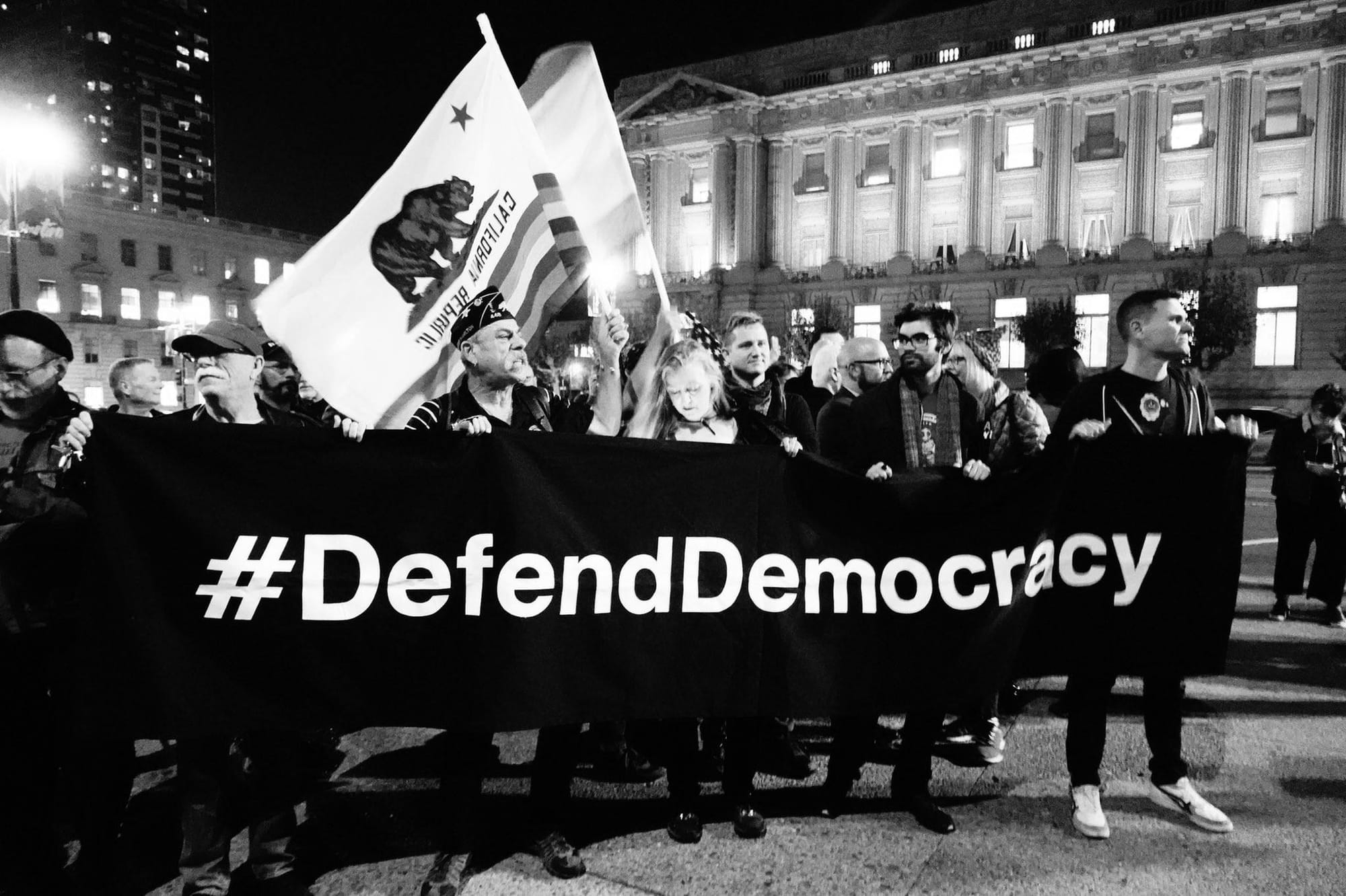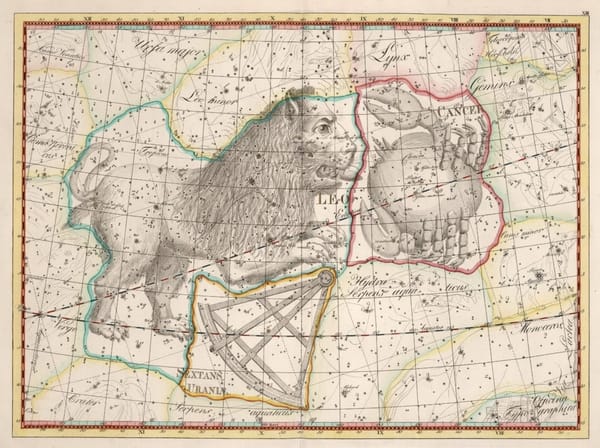The Future Is Coming and It's (Literally) Sunny: Notes on the Solar Revolution
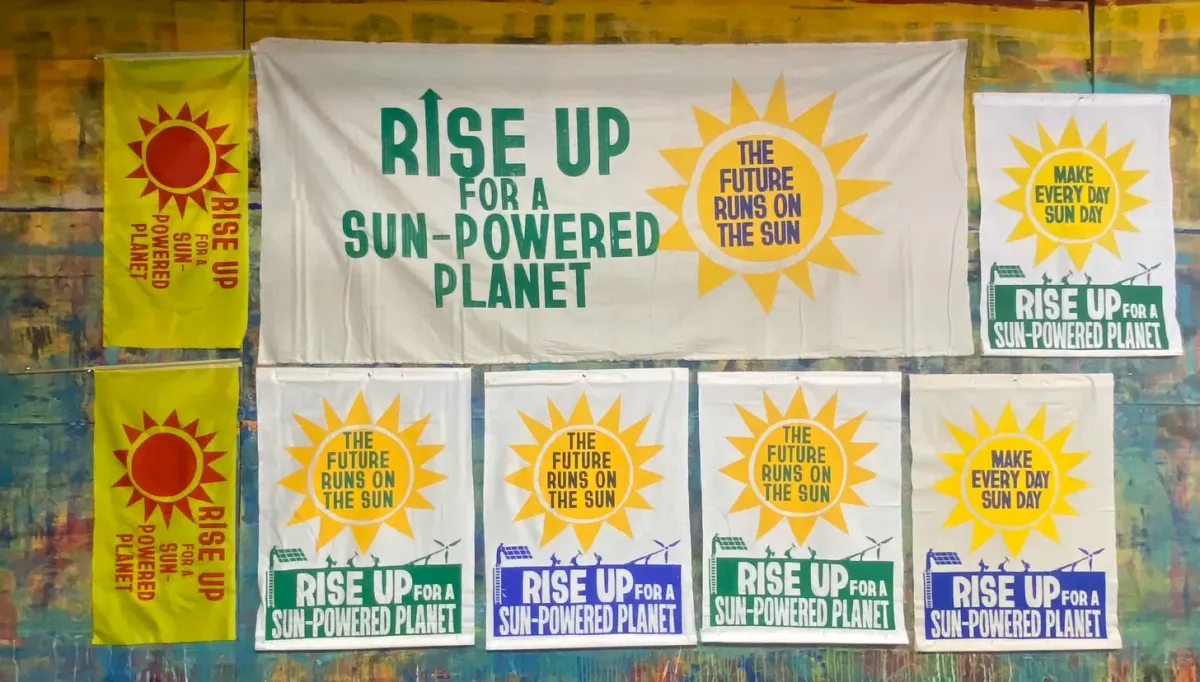
I drove home to San Francisco from New Mexico last weekend, and in the western Mojave desert of California I passed in quick succession three vast renewable energy sites: the first was three solar concentrator power plants, the kind where rings of mirrors reflect sun onto a central tower, which I think is now an outdated model, but it was striking to see the literally dazzling array; the second was a big field of solar panels around the town of Mojave t hat appeared to be tipping toward the setting sun; and then a long array of wind turbines just before the desert ends as the road heads uphill into Tehachapi, the town that straddles the pass between the Central Valley and the desert. Renewables are the future and they're inevitable; the one question is whether we'll make the transition swiftly enough to forestall the worst of climate change. We could. We know exactly how to do it, and we know exactly what the obstacles to doing it are.
Two things are striking about the Trump Adminstration's tying itself to fossil fuel and particularly to affirmative action for coal, welfare for coal, bailouts for coal. One is that it's a losing game in the long run, because renewable energy is just better in every way--profoundly cheaper, profoundly cleaner, more universally available, far quicker to install. More universally available means you can hook up your own house as people from Australia to Pakistan have done, and make your own power to run your home; you can achieve the kind of energy independence talked about as a national goal or make it a personal goal, even run your electric car off your roof.
Propping up fossil fuel is like propping up white supremacy: the future of the USA is a nonwhite majority, and the future of the human race is renewable energy. You can batter it and badge it and try to roll time itself backward, but you can't in the long term stop the renewable revolution. You can just make things worse in the short term, so that some planet-destroyers can grab a few more dollars. Bill McKibben spoke about all this on tour for his exhilarating new book Here Comes the Sun, a glorious compendium of solar facts and possibilities, a big-picture overview of where we're at and where we could go.
In the book he notes that, "in 2024 California used 25 percent less natural gas to produce its power than it had in 2023, which is a big number. Through mid-April of 2025, as more panels and batteries came online, the numbers got even better: California was using 44 percent less natural gas to make electricity than it had just two years earlier." In person, he noted that in Pakistan power from the grid is down 35% because so many people have installed solar panels to make their own; in Australia, 40% of homes have solar installed; China is installing a gigawatt of solar power every eight hours (a gigawatt, Bill reminds us, is the equivalent of a nuclear or coal-fired power plant). The revolution is here, and it's glorious and hopeful.
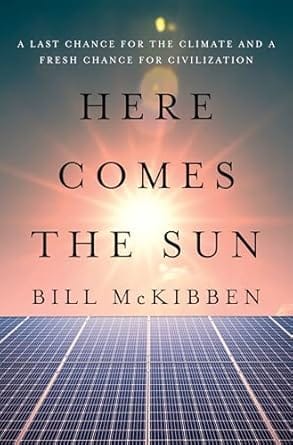
The solar revolution means that power can be decentralized, democratized, distributed far more justly. So it makes perfect and hideous sense, given the nostalgia of authoritarians for their version of a golden age (of exclusion, exploitation, and inequality ), to tie themselves to the past, with the heavy anchor of all fossil fuel's problems. Because the other reason team Trump loves fossil fuel is because it's so inherently anti-democratic (and deeply tied to authoritarian regimes from Russia to Saudi Arabia and some autocratic left regimes, such as the Maduro regime in Venezuela).
We use the same word for both political/social power and the power that runs our machines. One source of the power that runs our machines is fossil fuel, an unequally distributed resource; it occurs in a limited number of places worldwide, it's easy for tyrants and corporations to grab and monopolize and exploit to make political power even more unevenly distributed. About 80% of human beings live in net fossil-fuel importing countries, meaning that they are caught up--as are we all--in the ugly anti-democratic politics of fossil fuel, the stuff that's making a lot of us poorer and all of us on a planet hurtling toward terrible thresholds of destructive climate change. Those importer countries are spending a lot on what exporter countries are selling, funding fossil fuel's literal and political poisons--so they have economic and political, as well as ecological, motives to make the transition. And a lot of them are making it.
Just as fossil fuel is tied to inequality and autocracy, so renewables can be democratic. In a world where every country and almost every region and even locality can generate its own energy, the corrosive geopolitics of fossil fuel will come to an end and with it the corrosive political power of the fossil fuel industry. (In places where solar is less viable as a year-round source, hydror geothermal, and wind power can do a lot.) I believe climate is the most important of all issues, because it's about all life on earth, everywhere, for the next ten thousand years or more; it's a human rights issue, a justice issue, an agricultural issue, an ecological issue, an extinction issue, an issue so profound that it's reshaping the globe with sea level rise and melting ice and migrating species, making some places unliveable and bringing an onslaught of disasters--flood, fire, drought, famine, extreme heat--both fiercer and more frequent than in the placid holocene in which our species evolved.
But for the last several months, as you may have noticed, I've been focused on the democracy side, and even though I care deeply about climate, I've thought less about it over those tumultuous months than at any time in the past decade or so. Climate is a democracy issue because we in the global north who have historically burned most of the fossil fuel that generated most of the climate change have no right to destroy the viability of the lands and homes and species of the global south, just as the rich have no right to wreck the lives of the poor. And arguably we humans have no right to wreck whole ecosystems, a planet, drive species into extinction. But it's also a democracy issue because most people on earth take climate seriously and support action, including government spending and system change, to address it. It's a minority of the powerful tied to the fossil fuel industry who oppose it. It's a wealthy minority who've decided to wreck the world for millennia to come rather than surrender a little of that wealth.
Of course when it comes to Trump and the American right, there's also a weird way in which fossil fuel, like red meat, has some tie to masculinity of the fragile variety. I'm not sure why they haven't gotten behind the virility (if you want to look at it that way) of powerful electrical vehicles. Back in New Mexico, I had my first ride in a F150 Lightning--an all-electric truck that can power a house in a blackout--and on the way down the mountain, I had the pleasure of watching the car recharging itself as it went downhill. Electric stuff just works better. With all that noise about every-man-for-himself independence and the survivalist subcultures of the right, the fact they're not embracing the idea that your rooftop can be an autonomous generating station is..well maybe they'll catch on but fossil fuel propaganda props up the industry. Which creates jobs but not nearly as many as renewables do, and often toxic, dangerous jobs.
Many of us--activists, engineers, urban planners, policy wonks– are trying to accelerate the transition, from those working toward the future through supporting renewables and other pieces of the climate solutions we have at hand: better design of individual buildings, cities, towns, to make places where public transit, bikes (including electric bikes, which are catching on all over), and pedestrian means of getting around work, better machines from electric cars to heat pumps and induction stoves, better agriculture, less impactful diets, less methane-generating food waste, more protection of nature in all respects, to list a few.
Some are working at the other end of the crisis by trying to shut down the fossil fuel industry, on a global scale from Oil Change International (on whose board I've served for eight years) to the Fossil Fuel Non-Proliferation Treaty campaign, and on a local scale via the innumerable individual campaigns against building new fossil fuel plants, pipelines, refineries, and other pieces of fossil-fuel infrastructure, including fossil-fuel powered data centers. But for any and all of this to happen, we need democracy--systems in which we are in charge of our own future, not overridden by oligarchs.
Which is part of why I'm proud to also be on the board of Third Act, the climate-and-democracy group Bill McKibben founded a few years ago, to recruit and mobilize the superpowers of people over sixty (it's been hugely successful; we now have 100,000 members all over the country, organized into chapters). And Third Act is coordinating with dozens of other climate groups this coming Sunday, the fall equinox, Sun Day, to celebrate and advocate for solar power and the beautiful future it can still bring. There'll be 500 events across the country Sunday. Find one if you're free, and whether you focus on solar this one day or not, focus on it as our literally dazzling, democratic, liberating future. If we seize it.
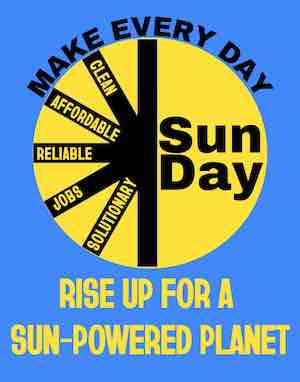
p.s. If solar is the future, of course the regressive Trump ("make America 1958 again") is against it. "Six Ways Trump Is Screwing Solar" in Rolling Stone.
